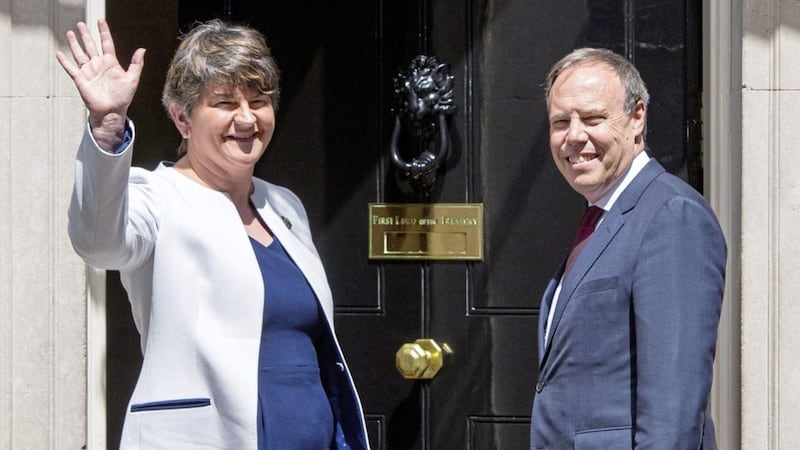Almost one hundred years after the imposition of partition and the denial of national democracy to the people of this country the implications of both continue to set the political agenda for all the parties in Ireland and Britain.
That is the very clear message from the results of the Westminster general election.
For the past year, Ireland has been in a political crisis because of the British government’s continued interference in Irish affairs on an issue that has also plunged Britain into turmoil – Brexit.
Brexit has unintentionally, but perhaps inevitably, placed partition at the centre of Irish and British politics. It has done so because of the uncertainty of what Brexit means politically and economically for Ireland.
Politically in terms of its impact on the Good Friday Agreement and the fear of a ‘hard border’, in terms of immigration and the consequences of ‘policing’ such a border.
And economically in terms of the free movement of people, services and goods within Ireland and between Ireland and Britain.
Since the Brexit referendum in June last year the political mood of the north’s electorate has affected politics on this island and in Britain in a way that is completely unexpected.
The refusal by the British government and the unionist parties to recognise and accept the Brexit vote of the people in the north to remain in the EU is related to the surge in support for Sinn Féin in the March assembly election and the surge in that election led to a further surge for Sinn Féin in the recent Westminster election.
Sinn Féin achieved its largest vote ever of 238,915 (29 per cent) - and won seven seats – an increase of three.
The March result for Sinn Féin and for other progressive parties resulted in the unionists losing their majority in the assembly for the first time since partition and as a result of that the unionist parties set about mobilising unionist voters which saw the DUP increase its number of MPs and their share of the unionist vote.
Instead of using its result to positively improve the quality of people’s lives here through helping to restore the north’s executive the DUP rushed to the aid of an unpopular British conservative government with a promise to bail them out.
Theresa May’s setback is the second time the people of Britain, within a year, have delivered a shocking blow to the Tories. David Cameron was forced to resign following his decision to hold the EU referendum. It, like May’s decision to call an election, was wholly unnecessary.
Few predicted the Brexit result, fewer still predicted May’s loss of a majority and even less saw the impressive performance of the leader of the British Labour Party, Jeremy Corbyn. He had been written off as a credible figure.
Yet his election campaign has re-energised his party, the young people of Britain, and he is now being viewed as a prime minister in waiting.
The shock to Theresa May in the June poll has temporarily placed the DUP in a pivotal position to form the next British government.
But in supporting the Tories the DUP have to be very careful because the price they might have to pay could be very high indeed.
The Conservative’s agenda is to cut money to public services and to shrink the welfare state.
We have already seen the impact of these policies on health, education and a range of welfare-related services here.
Before the resignation of Martin McGuinness and the collapse of the north’s institutions these cuts were already undermining the viability of the institutions.
In this new situation where the DUP help to form the British government and keep it in office it would be seen as the Conservative Party here in all but name and will carry full responsibility for the British government’s policies of cuts to public services.
It will take some time for the shifting sands in Irish and British politics to settle.
But this much we know: Irish nationalists have turned their backs on Westminster; a new, young and openly gay Taoiseach has just been elected to the Dáil albeit leading a conservative government; unionists hold the keys to Downing Street; the SDLP are in review mode following a disastrous election and a pro-united Ireland potential British prime minister is in the wings.
Who said politics is boring?








